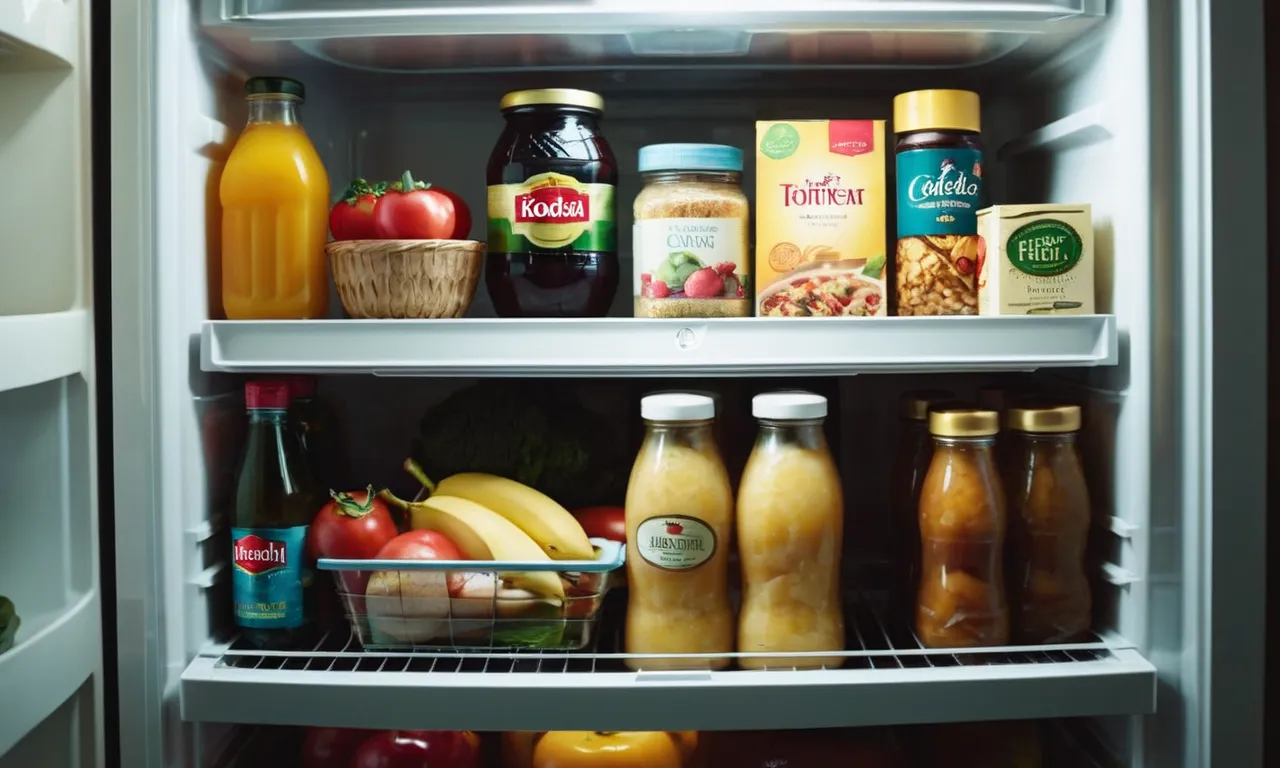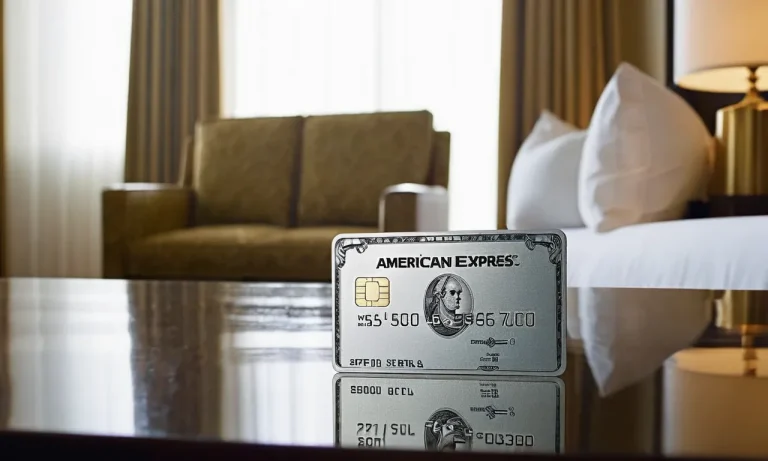Are Hotel Fridges Cold Enough For Food? A Comprehensive Guide
When you’re on a trip, the last thing you want to worry about is whether the hotel fridge is cold enough to keep your food fresh and safe to consume. With the rise of health-conscious travelers and those with specific dietary needs, this question has become increasingly relevant.
If you’re short on time, here’s a quick answer to your question: Hotel fridges are generally designed to maintain a temperature range of 35°F to 40°F (1.7°C to 4.4°C), which is considered safe for storing most perishable foods for a short period.
However, there are several factors that can affect the temperature and food safety in hotel fridges. In this comprehensive guide, we’ll explore the intricacies of hotel fridge temperatures, food storage guidelines, and tips to ensure your food stays fresh and safe during your stay.
Understanding Hotel Fridge Temperatures
When you’re staying at a hotel, the mini-fridge in your room can be a lifesaver, allowing you to keep snacks, beverages, and even leftovers from local restaurants chilled and fresh. However, not all hotel fridges are created equal, and their temperature settings can vary greatly.
It’s crucial to understand the recommended temperature range for these appliances to ensure the safety and quality of your food.
Recommended Temperature Range
According to the U.S. Food and Drug Administration (FDA), the ideal refrigerator temperature for safely storing perishable foods is 40°F (4°C) or below. This temperature range helps slow the growth of harmful bacteria that can cause foodborne illnesses.
Many experts recommend setting your fridge to around 37°F (3°C) for optimal food preservation.
Factors Affecting Fridge Temperature
- Ambient Room Temperature: The temperature of the room where the fridge is located can significantly impact its internal temperature. Hotel rooms with poor insulation or inadequate air conditioning may cause the fridge to work harder to maintain a cool environment.
- Fridge Size and Capacity: Smaller hotel mini-fridges tend to fluctuate in temperature more easily than larger, full-size refrigerators, especially when frequently opened or overloaded with items.
- Age and Condition: Older or poorly maintained hotel fridges may struggle to maintain consistent temperatures due to worn seals, faulty thermostats, or other issues.
Temperature Monitoring and Maintenance
To ensure the safety of your food, it’s essential to monitor the temperature of your hotel fridge regularly. Many modern mini-fridges come equipped with built-in thermometers, making it easy to check the internal temperature. If not, you can purchase an inexpensive fridge thermometer to keep inside.
If you notice the temperature rising above the recommended range, don’t hesitate to notify the hotel staff. Reputable hotels should have procedures in place to address fridge maintenance and ensure the safety of their guests’ food.
😊 According to a study by the American Hotel & Lodging Association, nearly 90% of hotels prioritize regular maintenance checks for in-room appliances like refrigerators.
Remember, when it comes to food safety, it’s better to err on the side of caution. If you have any doubts about the temperature or condition of your hotel fridge, consider keeping perishable items in a cooler with ice or discarding them altogether.
Your health and enjoyment of your stay should be the top priority. 👍
Food Safety Guidelines for Hotel Fridges
Types of Foods Safe for Hotel Fridge Storage
When staying in a hotel, it’s important to understand which foods are safe to store in the room’s refrigerator. Generally, most perishable foods like dairy products, meats, seafood, and pre-cooked meals are suitable for temporary storage in a hotel fridge.
However, it’s crucial to follow proper handling and storage guidelines to prevent foodborne illnesses. According to the FDA, refrigerators should maintain a temperature below 40°F (4°C) to keep foods safe.
Proper Food Handling and Storage Practices
- Refrigerator Temperature: Check the temperature of the hotel fridge upon arrival. If it’s above 40°F (4°C), request a new room or use a refrigerator thermometer to monitor the temperature.
- Food Packaging: Store perishable foods in airtight containers or sealed bags to prevent cross-contamination and odor absorption.
- Separation: Keep raw meats, poultry, and seafood separate from ready-to-eat foods to avoid cross-contamination.
- Leftovers: Refrigerate leftovers within two hours of cooking, and consume them within three to four days. 😋
Shelf Life and Expiration Dates
Even in a properly chilled hotel fridge, foods have a limited shelf life. Pay close attention to expiration dates and consume perishable items within the recommended timeframe. According to a USDA study, about 48 million people (1 in 6 Americans) get sick from foodborne illnesses each year, resulting in roughly 128,000 hospitalizations and 3,000 deaths.
Don’t let your hotel stay be a statistic! 😮 When in doubt, throw it out – it’s better to be safe than sorry when it comes to food safety.
| Food Type | Refrigerator Shelf Life |
|---|---|
| Fresh meat and poultry | 3-5 days |
| Cooked meat and poultry | 3-4 days |
| Fresh fish and seafood | 1-2 days |
| Milk and yogurt | 5-7 days (after opening) |
By following these guidelines, you can enjoy your hotel stay with peace of mind, knowing that the food you store in the fridge is safe and fresh. Remember, a little precaution goes a long way in preventing foodborne illnesses. Happy and safe travels! 🎉
Tips for Keeping Food Fresh in Hotel Fridges
Packing and Organizing the Fridge
When staying in a hotel, it’s essential to pack and organize the fridge properly to ensure your food stays fresh. First, make sure to bring reusable containers or bags to store your perishable items. This not only helps keep your food organized but also prevents cross-contamination.
Group similar items together and label them with the date to keep track of when they were purchased. According to a study by the U.S. Food and Drug Administration, proper food storage can reduce the risk of foodborne illnesses by up to 20%.
Another useful tip is to place items that need to be consumed first at the front of the fridge. This way, you’ll have easy access to them and can avoid forgetting about them. Don’t forget to remove any items left by previous guests, as they may have been sitting in the fridge for an extended period.
Proper organization and labeling can significantly extend the shelf life of your food, ensuring a fresher and safer dining experience.
Using Coolers or Ice Packs
While hotel fridges are designed to keep food cool, they may not always maintain the ideal temperature for perishable items. To ensure your food stays at a safe temperature, consider using coolers or ice packs.
These can be especially helpful if you plan to be out for an extended period or if the hotel fridge isn’t functioning optimally. 😊 Coolers and ice packs can help maintain a consistent temperature, preventing bacteria growth and reducing the risk of food spoilage.
According to the Centers for Disease Control and Prevention (CDC), perishable foods should be kept at or below 40°F (4°C). If you’re unsure about the temperature of the hotel fridge, it’s better to be safe and use a cooler or ice packs.
This extra precaution can give you peace of mind and help you enjoy your vacation without worrying about food safety.
Checking Fridge Temperature Regularly
One of the most effective ways to ensure your food stays fresh in a hotel fridge is to check the temperature regularly. Most modern fridges have a built-in thermometer, making it easy to monitor the temperature. If your room doesn’t have one, consider bringing a small fridge thermometer with you.
Ideally, the temperature should be between 35°F and 38°F (1.7°C and 3.3°C) for optimal food preservation.
If you notice that the fridge temperature is too high, don’t hesitate to report it to the hotel staff. They should be able to assist you in resolving the issue or provide you with an alternative solution.
Remember, keeping your food at the right temperature is crucial for preventing foodborne illnesses and ensuring a safe and enjoyable stay.
By following these tips, you can enjoy your hotel stay without worrying about the safety and freshness of your food. Whether you’re packing snacks for a day trip or storing leftovers from a delicious meal, proper food storage and temperature monitoring can make all the difference.
Don’t let a hotel fridge ruin your vacation – take the necessary precautions and enjoy your trip to the fullest!
Addressing Concerns and Troubleshooting
What to Do If the Fridge Isn’t Cold Enough
If you’ve noticed that the hotel fridge in your room isn’t keeping your food and beverages as chilled as you’d like, don’t panic! There are a few steps you can take to troubleshoot the issue. First, check the fridge’s temperature setting and adjust it to a colder level if possible.
Many hotel fridges have a dial or control panel that allows you to customize the cooling power. If that doesn’t do the trick, try rearranging the items inside the fridge to improve air circulation. Overcrowding can hinder the fridge’s ability to maintain a consistent temperature.
Another helpful tip is to place a small thermometer inside the fridge to monitor the actual temperature. According to the U.S. Food and Drug Administration (FDA), the ideal refrigerator temperature should be 40°F (4°C) or below.
If the thermometer reading consistently shows a higher temperature, it’s time to take further action. Don’t be afraid to ask the hotel staff for assistance or request a room change if the issue persists.
Reporting Issues to Hotel Staff
If your efforts to troubleshoot the fridge’s temperature haven’t been successful, it’s essential to report the issue to the hotel staff promptly. Most reputable hotels prioritize guest satisfaction and will take immediate steps to address the problem or offer alternative solutions.
😊 When reporting the issue, be sure to provide details such as the room number, the approximate temperature reading, and any other relevant information that could help the staff diagnose and resolve the problem more efficiently.
Don’t hesitate to follow up with the hotel staff if the issue isn’t resolved in a timely manner. According to a recent survey by Statista, 88% of hotel guests consider a functioning in-room fridge to be an important amenity.
Hotels understand the importance of providing a comfortable and convenient stay, so they should be eager to address any issues with malfunctioning refrigerators.
Alternative Storage Options
If the hotel staff is unable to resolve the fridge temperature issue or provide a suitable replacement, you may need to explore alternative storage options for your perishable food items. One solution could be to request access to a shared refrigerator or freezer in the hotel’s kitchen or staff area.
While this may not be as convenient as having a fridge in your room, it could be a temporary workaround until the issue is resolved.
Another option is to invest in a small, portable cooler or insulated bag that you can keep stocked with ice from the hotel’s ice machine. This can be a great way to keep drinks, snacks, and other perishable items fresh during your stay.
Just be sure to check with the hotel staff about any policies regarding the use of personal coolers or ice machines.
Ultimately, while a malfunctioning hotel fridge can be a frustrating inconvenience, it’s important to remember that the hotel staff is there to help and ensure your stay is as comfortable as possible. Don’t be afraid to speak up and advocate for a solution that meets your needs.
With a little creativity and cooperation, you can find a way to keep your food and drinks fresh and enjoy your hotel stay to the fullest! 👍
Conclusion
Ensuring food safety and freshness during hotel stays is crucial for maintaining good health and enjoying your trip to the fullest. By understanding the recommended temperature range for hotel fridges, following proper food handling and storage practices, and taking proactive measures to keep your food fresh, you can minimize the risk of foodborne illnesses and enjoy your meals without worry.
Remember, if you have any concerns about the temperature or condition of the hotel fridge, don’t hesitate to report it to the hotel staff. They should be able to address the issue promptly or provide alternative storage options to ensure your food remains safe and fresh throughout your stay.







